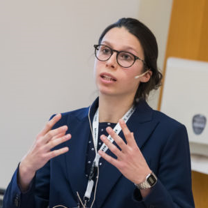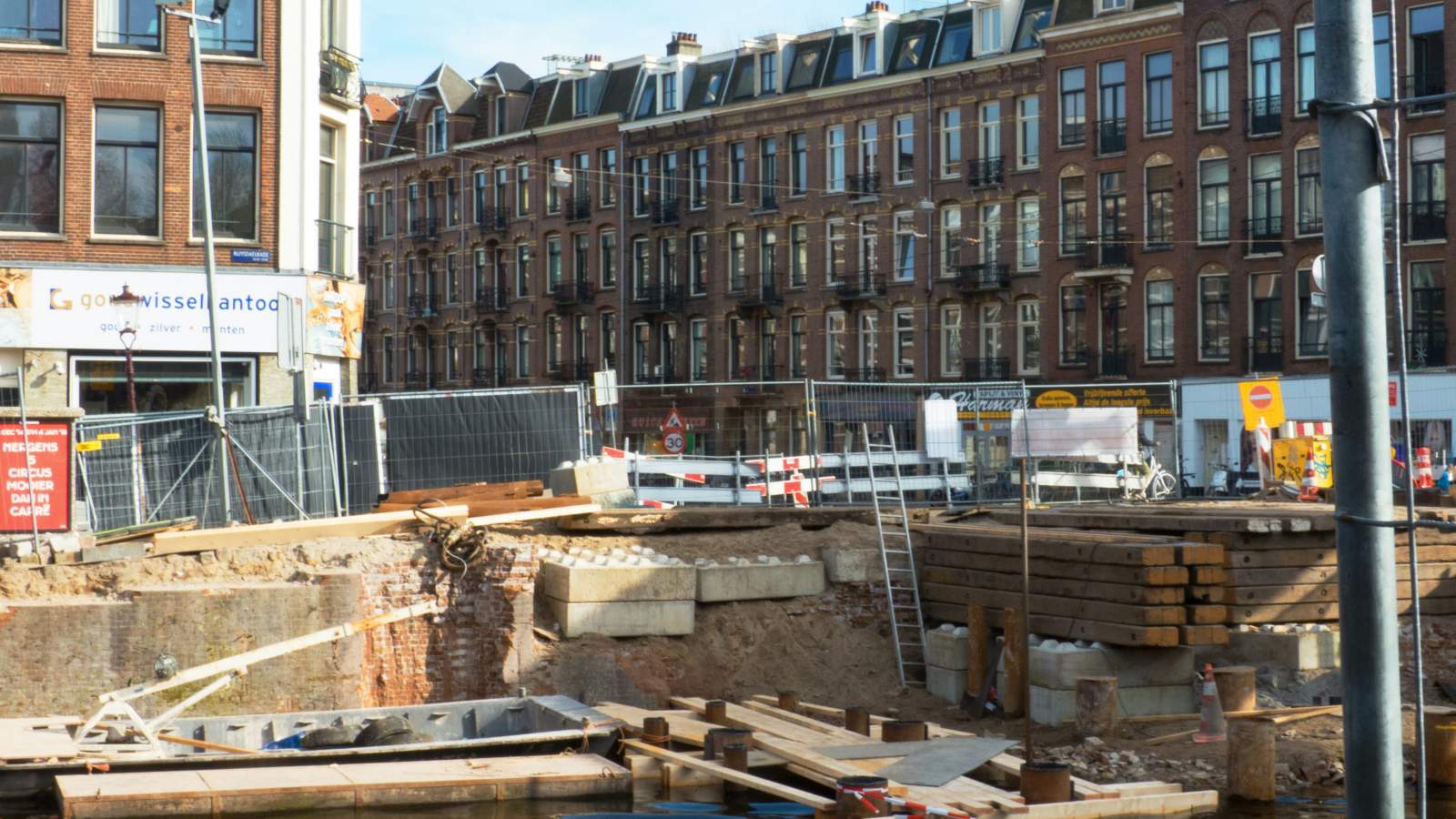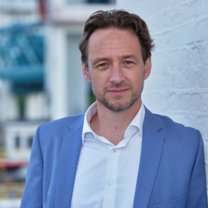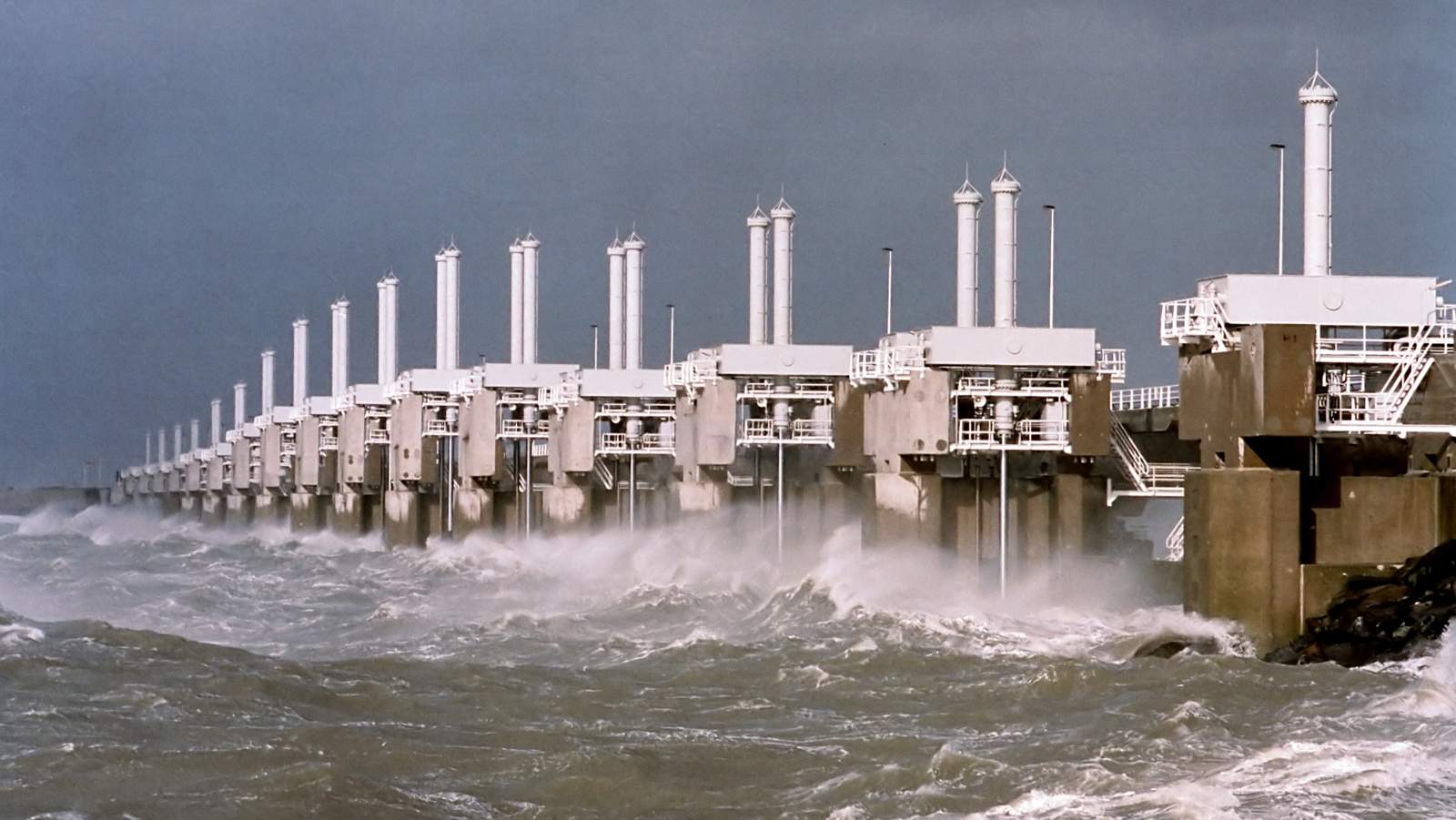Disaster preparedness: safeguarding access to quality healthcare after floods
During major floodings, relentless streams of water endanger people’s lives at home, disrupting roads and infrastructure and rendering hospitals inaccessible. When that happens, other hospitals need to cover a larger area and a greater influx of patients, like during the Covid-19 pandemic. Risks that emerge are damages to water supply and illnesses due to stagnant water. This is where prevention of floodings and pandemics are interrelated. Maria Pregnolato and Bas Jonkman, both active members of the 4TU.Resilience Engineering community, contribute to a new research project with their expertise in floods and water management, adding another relevant perspective to disaster and pandemic preparedness.
This article dives in the international experiences and backgrounds of Maria Pregnolato and Bas Jonkman to learn how they work in resilience engineering with a focus on flood disaster preparedness.
Frontrunner project “Pandemic lessons for Flood Disaster Preparedness”
In the coming four years, Maria and Bas will be involved with the frontrunner project “Pandemic lessons for Flood Disaster Preparedness”. This project is part of the cooperative initiative Convergence and will identify what is needed to safeguard access to quality healthcare during and after floods. In addition, the project will take into account lessons learned during the recent floods and lessons learned from the Covid-19 pandemic when the healthcare system was overwhelmed.
An international outlook on flood disaster preparedness in The Netherlands
Maria Pregnolato is originally from Italy and has a double degree in Building Engineering and Architecture (Italy and China*). She worked five years at the University of Bristol, before moving to Delft. Nowadays, Maria works in the same group as Bas Jonkman, at the department of Hydraulic Engineering.
Maria: “I made an early start with multidisciplinary work. I obtained my PhD in Civil Engineering at Newcastle University, and obtained recently a MSc in Strategy, Leadership and Change as part of my leadership development journey. My research interests are in infrastructure resilience, urban adaptation and disaster management from natural hazards and in particular floodings. The UK and the Netherlands have these themes absolutely in common. There is a social need for this research and consequently impact, which I think is very important. After working and living in Bristol for the past five years, I moved to Delft where I will be working on topics like flooding to the built environment, roads, bridges and buildings. I will explore solutions for adaptations and reducing the impact of flooding.”
“The TU Delft section Hydraulic Structures and Flood Risk used to be focussing on a conventional Civil Engineering approach of flood protection and flood risk, therefore Maria’s additional expertise is very welcome”, says Bas Jonkman. “We were able to get to know each other through the 4TU.DeSIRE programme. Maria got rewarded a DeSIRE Early Career Fellowship to visit us in 2020”. Due to the Covid-19 pandemic, this visit was postponed until June 2022. Since then, Maria has been involved in activities such as webinars, workshops and attending the ICRS conference in Mexico City in the summer of 2023.
“My move to Delft has increased my active involvement with the 4TU.RE community, making it much easier to participate in activities. There is a lot of potential to unleash, because my research focus offers opportunities for cooperation beyond institutes. When I was presented with the opportunity to be an active member in 4TU.RE’s Scientific Steering Group, I gladly accepted. The DeSIRE fellowship played an important part in my career. Therefore, I am thankful and grateful to do something back and to help new people be a part of it.” says Maria.
The research interests of Maria are broad, ranging from her expertise in investigating the impact of extreme flooding to bridges, to focusing on structural health monitoring and Digital Twins, exploring the role of sensing and digitalisation within infrastructural assets exposed to flooding and aging. In addition, Maria has started to develop new interest for nature-based solutions and storm surge barriers. Maria recognizes that there are many common interests and synergies to be found at TU Delft and at close-by universities, such as the Erasmus University Rotterdam (EUR). Hence her involvement in the frontrunner project Pandemic lessons for Flood Disaster Preparedness.
Flood disaster preparedness: individual resilience just as important
When it comes to expertise in flood disaster management, Bas has many years of international experience to draw on. Most recently, Bas was a visiting professor** at the Texas A&M University in 2022. “We can learn a lot from other countries, such as Texas, US. What we do in the Netherlands is fixing the water system, we build safe water defences and trust the rest will be all right. Nevertheless, other areas of society in the US are more prepared for disasters, compared to the Netherlands. For example, hospitals are better equipped for unexpected events, houses are elevated, there is experience with the evacuation of civilians, etc. Overall, the individual disaster preparedness level is higher in the US.”
Bas continues: “It’s rather new, that we, in the Netherlands, move from a collective approach to a more individual approach, for example in Limburg. In this respect, there is definitely something we can learn from the US. And vice versa, the US could learn from us in taking collective preventive measures, such as the delta works for Texas. Both in regions in the US and the Netherlands, e.g. along the river Geul, the geography and setting are not suitable for large scale flood protection infrastructure, such as dikes. This makes it very interesting to study the multiple layers in a system, and to try to make it more resilient compared to conventional systems. By layers, you can think of taking measures in landscape, room for water, local barriers, adaptation of houses, individual preparedness, insurances, and early warning systems. How will this be implemented and play out in practice? This is what motivates me to study further.”
Passing on the Resilience Engineering baton
After being involved with the 4TU.Resilience Engineering centre’s Scientific Steering Group (SSG), Bas Jonkman leaves his role for Maria to succeed. Bas was involved with the first proposals for the 4TU.RE centre and the DeSIRE programme: “Back then, the programme filled a gap, encouraging us to take in a broader perspective, from engineering to a societal orientation. Many people that were involved, for example as a tenure-tracker or postdoc, are now taking on leading positions in academia and elsewhere. That is a great outcome of the programme.”
“Also”, Bas adds, “on the level of my research expertise, I was really inspired to adopt a broader view of resilience aspects into the design of flood defences and what could happen when the system fails. In addition to a concrete solution-oriented civil engineering approach, I also started to ask myself questions about the role people play in organizations, how do we handle shocks? What is the broader context for the civil engineering solutions that we design? In the aftermath of the 2021 flooding in Limburg, I realized that the national investigation on the causes and the impact of the flooding would be helped by taking a broader perspective: look at economic impacts, health impacts and the amplifying influence of Covid-19 in that period. I realized even more that the work that we do, is not only scientifically relevant, but also highly relevant for society.”
As Maria takes over from Bas in the SSG, Bas reminds her to enjoy this forum and to keep in mind that we are part of a network of scientists. “There is ample opportunity to prepare for comprehensive research proposals and to bring together various fields in a collaborative effort to address collective challenges. Resilience Engineering can be a bit fluffy and hard to make tangible, so it is interesting to find a balance between concrete civil engineering solutions and a broader perspective, bridging the engineered solutions and society at large.” says Bas enthusiastically.
Further reading
Key publications by Maria and colleagues:
Pregnolato et al. (2022). Towards Civil Engineering 4.0: concept, workflow and application of Digital Twins for existing infrastructure. Automation in Construction, 141: 104421. https://doi.org/10.1016/j.autcon.2022.104421
Arrighi et al. (2019). Preparedness against mobility disruption by floods. Sci. Tot. Env., 654, 1010-1022. https://doi.org/10.1016/j.scitotenv.2018.11.191
Key publications by Bas and colleagues:
Van Berchum EC, Mobley W, Jonkman SN, Timmermans JS, Kwakkel JH, Brody SD (2019) Evaluation of flood risk reduction strategies through combinations of interventions. Journal of Flood Risk Management 12 (S2) https://doi.org/10.1111/jfr3.12506
Vuik V., van Vuren S., Borsje B.W., van Wesenbeeck B.K., Jonkman S.N. (2018) Assessing safety of nature-based flood defenses: Dealing with extremes and uncertainties; Coastal Engineering Volume 139, September 2018, Pages 47–64
Video lecture
At the 182nd Dies Natalis of Delft University of Technology, January 12, 2024, prof.dr.ir. Bas Jonkman held a lecture “Redesigning deltas: The Delta Works of the future”, starting at 23:45 in the video: https://vimeo.com/896924896/55e68b3551
Pandemic lessons for Flood Disaster Preparedness at TU Delft
In addition to Maria's and Bas' involvement in the frontrunner project “Pandemic lessons for Flood Disaster Preparedness”, Tina Comes is also part of the team, together with Yared Abebe, Saba Hinrichs-Krapels, and Julien Magana.
Notes
*Maria Pregnolato obtained her double degree from University of Pavia, Italy, and the Tongji University of Shanghai, China.
**Bas Jonkman visited as a Hagler Fellow, at the Texas A&M University at Galveston, Texas.
Article written by Nienke D. Nijenhuis. Header image: Nazrin Babashova - Unsplash.







